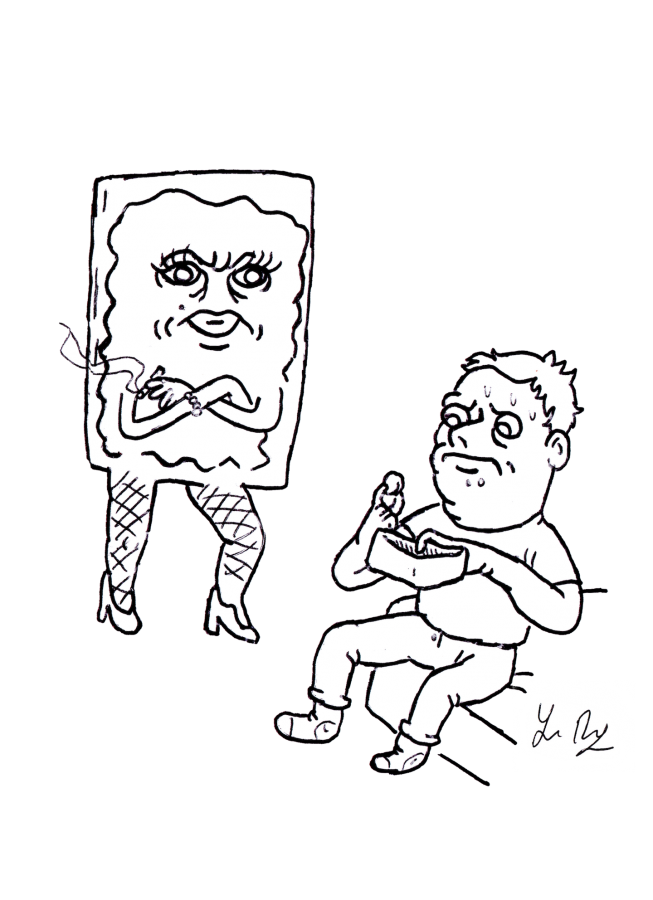State food policies introduce unsuccessful whole-grain substitution
Grace Harmon, News Editor
Originally published June 24, 2016
Leo Rauf
“If I’m expected to sit through six hours of school a day, walk through crowds of directionally-challenged students and deal with teachers who clearly do not like teenagers, at least give me two damn Pop-Tarts for my money.”
Upon entering our doors last September many students noticed a horrifying new change in the Activity Center: The sweet, wholesome food that students had previously flocked to the vending machine for had been replaced by snacks of cardboard content, with portions too small for satisfaction, at nearly the same prices as before.
Previously abounding with Lemonheads, juices and chips, the easiest food source in the school had changed. The biggest loss was the full fat, deliciously white grained Pop-Tarts we had grown to love. In its place: the previous price tag for two full-bodied pastries of $1.25 slapped onto one measly, whole-grained disappointment.
The cause for the change comes from the new “Smart Snacks in Schools” rules, implemented July 1, 2014. This policy, which was made by the U.S. Department of Agriculture, set nutrition guidelines for all food provided by any school programs, even those not served as lunches or breakfasts, for the first time.
The policy, according to Seattle Public Schools, aimed to decrease added sugars and fats, provide more whole-grain rich products, and give a greater focus on eating fruits and vegetables, going so far as to require all students to take a half cup serving of either at both breakfast and lunch.
As anyone who’s ever taken a juice cleanse can tell you, healthy doesn’t always mean delicious. Such recent policies change not only how much food a student can get for the same amount of money, but the contents of the food. Due to this, sales have gone down substantially.
According to Canteen Vendors, 554 Pop-Tarts were bought from the vending machine in a three month period in 2014. That year, with the changes implemented, only 328 were sold in three months, a 40 percent decrease.
As the whole wheat monstrosities that now occupy our Activity Center hurt not only our students’ taste buds, but also their desire to buy food from the school, one must ask if the change is really benefiting us.
If I’m expected to sit through six hours of school a day, walk through crowds of directionally-challenged students and deal with teachers who clearly do not like teenagers, at least give me two damn Pop-Tarts for my money.

























